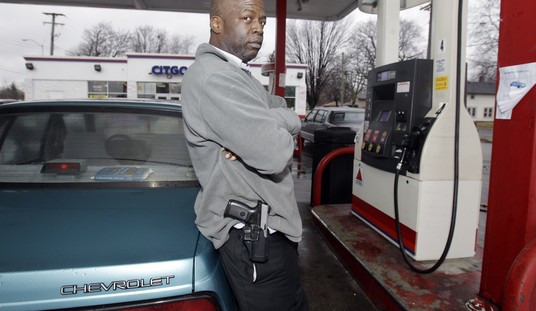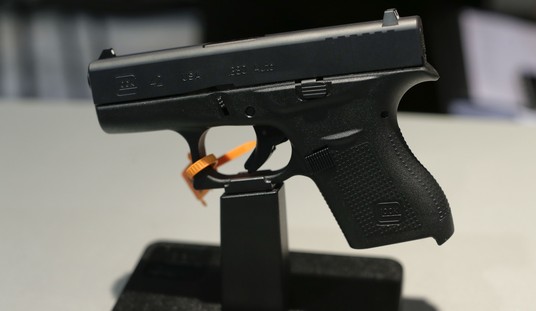
Dick Heller
The plaintiff in the landmark Supreme Court case Heller v. The District of Columbia, which established the individual right to keep and bear arms grounded in the Second Amendment, testified Jan. 30 before a District of Columbia committee considering two new gun ordinances.
“They have this mentality that more guns means more crime,” said Dick Heller, whose case is also known as Heller I, because he has another case in the courts now, Heller II, which will expand upon the rights in Heller I.
The hearing was conducted by City Councilor Philip H. Mendelson, the chairman of the council’s Judiciary committee and the author of the two bills in question.
The first measure, Bill 19-485, would require mandatory house arrest with a GPS tracking device for all defendants awaiting trial, or otherwise subject to recall for legal proceedings.
The second measure, Bill 19-614, is a reform of the city’s firearms regulations that would among other things, remove the requirement for an eye exam, allow for temporary possession of a firearm during the training and certification process for gaining a gun permit in the district and eliminate the requirement for all registered firearms to have a ballistics test conducted as part of the registration with the city.
Heller said the Mendelson bills were sincere, but misguided. “More guns mean less crime.”
In his testimony, Heller said violent crime was worse in Washington than in other cities with similar crack epidemics despite of and because of the absolute restriction on firearms in the nation’s capital.
“Washington had 10 times the murder rate of 48 comparable sized cities,” he said.
Because of the equal protection clause of the 14th Amendment, Heller said anything that happens in the District of Columbia, as a federal territory, has impact in the rest of the country, beyond the symbolic meaning of having something happen in the Capital.
“Whatever happens here has to happen in the other districts,” he said.
The McDonald lawsuit was filed 15 minutes after the Supreme Court issued its decision in Heller I, he said. “They had every expectation to win because of the 14th amendment.”
Also testifying was Emily Miller, a senior editor at the Washington Times and the author of the “Emily gets her gun” series of articles in her paper. The series chronicles Miller’s attempt to become a gun owner in the District of Columbia.
Miller said in her testimony that the 17-step process residents are forced to undertake is too much for a right guaranteed in the Bill of Rights.
“I always knew getting a legal gun would be a challenge, but I had no idea it would be this frustrating, time-consuming, expensive and complicated,” she said.
“As of now, I’m in the 10-day waiting period to see if my registration application is approved for a handgun or as I’ve tracked it, I’ve completed 14 of the 17 steps the city requires to register a gun,” she said.
By for the most galling part of the process was the safety training, she said.
Of the 47 names she was given by the city, all were outside the district’s city limits and only four were willing to teach her the four-hour class in their homes, she said.
Miller said she did not understand why the city government would require a woman to go outside its own jurisdiction to the home of a strange man with a gun in order to exercise her gun rights.
“I already don’t feel safe,” she said. “That’s why I wanted the gun in the first place.”
The process cost Miller, so far almost $500, she said. “Not the $60 fee listed in the packet the city gave me.” That figure included the $200 for the training class, but not yet the actual gun.

Emily Miller
As for the actual legislation considered, generally the reforms were technical and brought the district in line with other jurisdictions. For example, no state requires and eye exam.
The proposal for GPS-tracked house arrest will not go far. Fairly damning testimony from the U.S. Attorney’s office and the legal counsel for the office of public defenders, made it clear that Mendelson was tampering the bail process with unintended consequences.
Not the least of which was that a suspect caught with an unregistered gun would be subject to house arrest until his entire proceedings were resolved, including probation. While the suspected murderer by poison would be not.








Join the conversation as a VIP Member